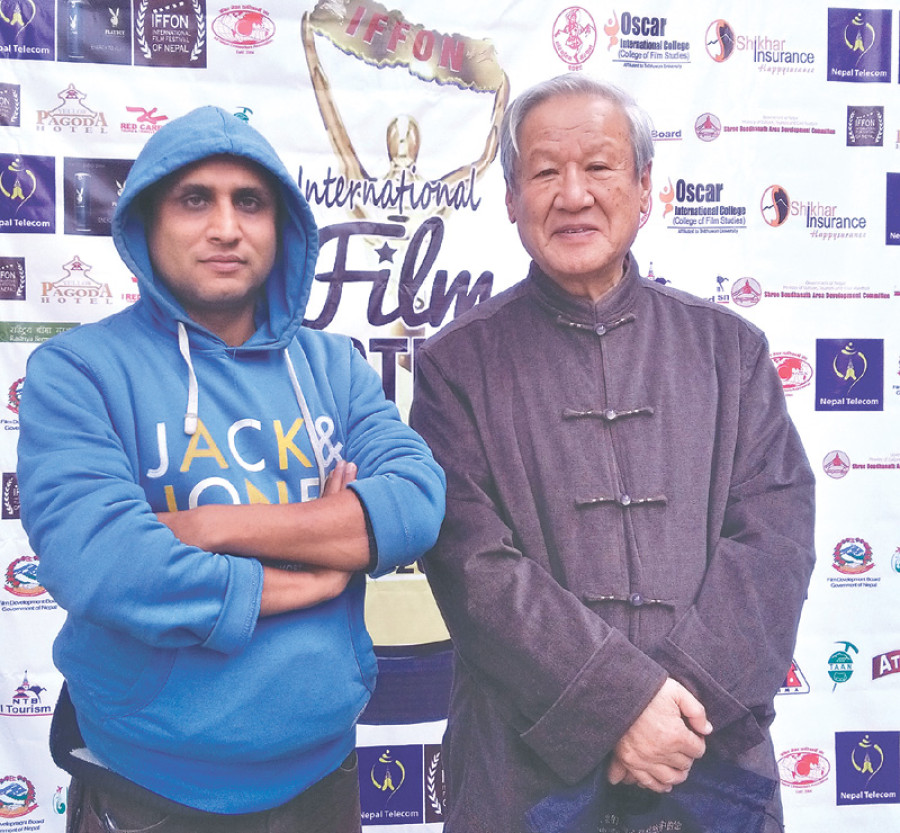Entertainment
Dharan film fest rumbles on
The third day of ongoing International Film Festival in Dharan saw the screening of movies like The Cave Smiles, Shadows on the Road, among others, along with a panel discussion on politics and movies.
Pratik Menaynbo
The third day of ongoing International Film Festival in Dharan saw the screening of movies like The Cave Smiles, Shadows on the Road, among others, along with a panel discussion on politics and movies. The five day festival, the first ever international movie fest organised in Dharan, kicked off on January 11 with a lineup of 47 movies from 13 different countries.
The third day began with the screening of the documentary, The Cave Smile by journalist Akhanda Bhandari. The 25-minute-long movie portrays the lifestyle of the Chepang people, some of whom still live in caves of Chitwan, Gorkha and Dhading districts. The documentary, written and directed by Bhandari, explores the harsh realities of Cheopang community that is rarely seen and heard in the media, despite the community coming often coming into the limelight.
Another movie, Shadows on the Road by Indian filmmaker Shrijan Nanda, which delves into the lifestyle of people living on footpaths of New Delhi, was screened at the festival. Other movies such as Hotel Nuebha Esla by Cuban filmmaker Iren Gutereg, Bhimdutta by Himgyap Tashi were also screened at the festival.
Along with the screening of the movies, the festival also featured a talk by Xei Fei, a professor at the Beijing Film Academy. Xie, at the event, spoke about the changes the Chinese movie industry has seen in the past few decades. He said, “The Chinese movie industry is an example of how it is still possible to make good movies in spite of the political situation.” Xie while talking about movies being more than just a source of money said, “Artistic movies live for centuries. The satisfaction given by those movies is far more than the one attained through commercial success.”
The festival also featured a discussion about politics and movies where filmmakers talked about how the political system of a country affected the movie industry. Speaking at the discussion, musician and a member of Nepal Communist Party (Maoist) Mani Thapa said, “Nepali movies were made just in the bourgeoisie style during Panchayat and the early multi-party system. Politicians have not been able to understand the importance of movies in our country so we have missed our chance to utilise positive aspects of it to bring social changes.”
Another filmmaker Laxminath Sharma said, “Movies and politics are somewhat related to each other everywhere in the world. Movies are a very important medium for showcasing varying ideologies and worldviews so film makers should focus on giving education and awareness, along with entertainment through movies.”
The ongoing International Film Festival will conclude on Jan 15.




 14.24°C Kathmandu
14.24°C Kathmandu










